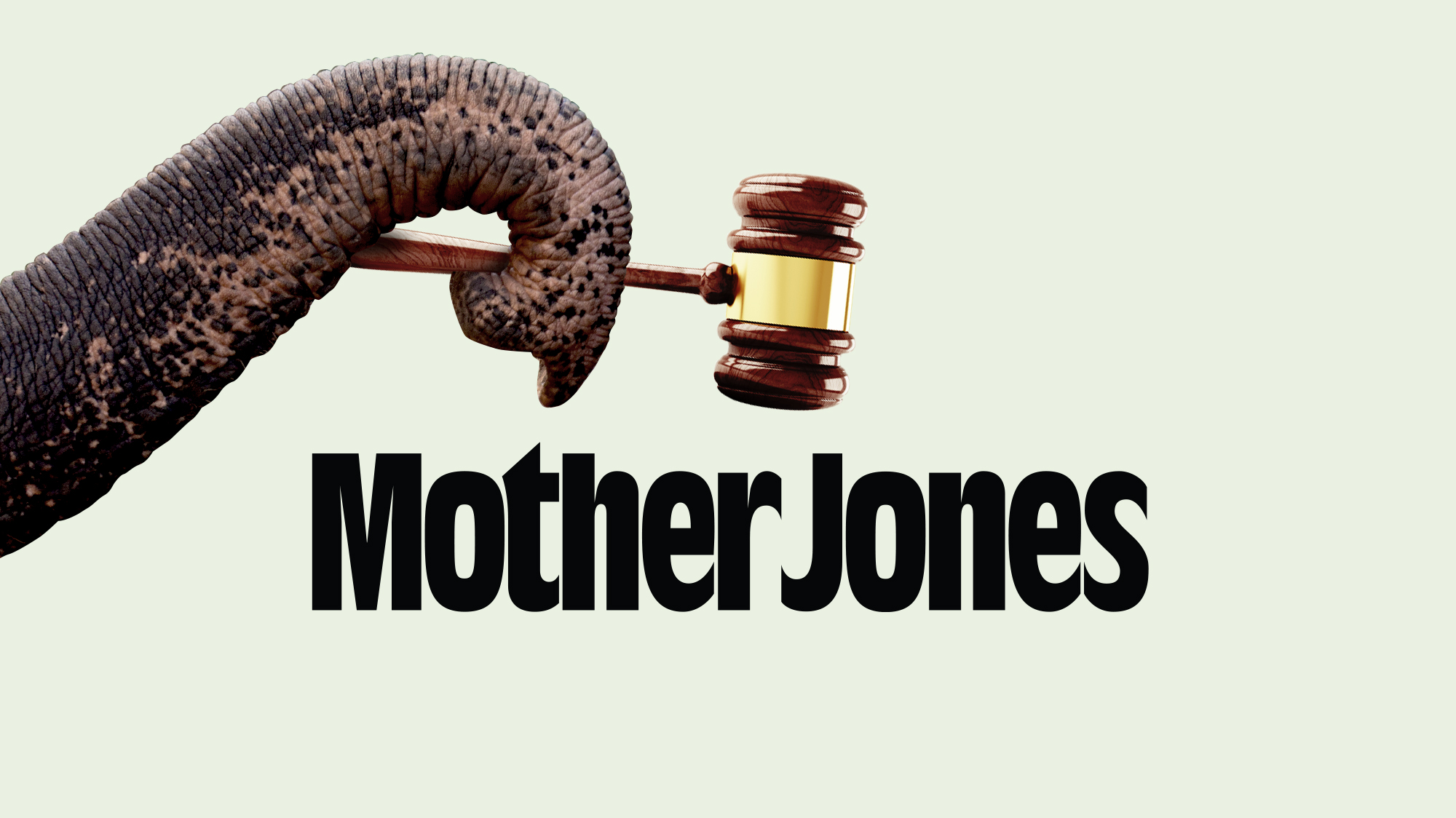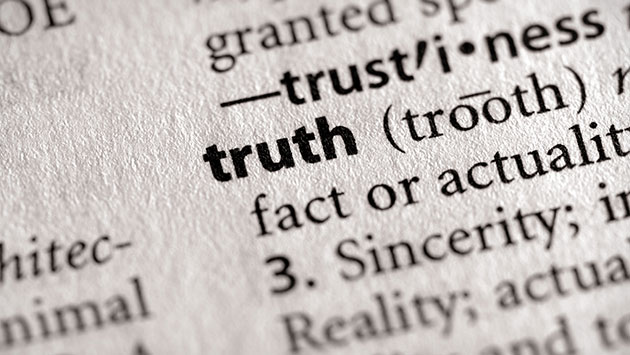If you’ve been following Mother Jones for a little while, you may have seen our tagline “Smart, Fearless journalism.” I like that line, but when I’m being completely honest, the “fearless” part is kind of impossible, at least for me. There are things that scare me, and I want to tell you about one of them (it’s the season for confronting our fears, after all). But I also want to tell you about a big reason why, even in the face of scary things, Mother Jones doesn’t have to run and hide.
Back in January 2019, my colleague Clara Jeffery, MoJo’s editor-in-chief, saw videos online of a pro-Trump rally in Washington, DC. They captured a confrontation between MAGA-hat-wearing high school students and Native American elder Nathan Phillips. Clara watched the videos (the longest of which is here) and tweeted about what she saw and the media coverage of the event. And that was the end of it, as far as we knew.
Except that eight months later, a local newspaper reported that a defamation suit had been filed in Kentucky on behalf of several of the students’ families. It named Clara and 11 other people who had tweeted about the incident: Maggie Haberman of the New York Times, CNN commentator Ana Navarro, Sen. Elizabeth Warren, then-Rep. Deb Haaland, and others. The complaint claimed that each of the defendants had been “individually offered the opportunity to correct, delete, and/or apologize for their false statements, but each refused.”
Huh? Neither Clara nor I had heard from anyone asking for a change or correction to the tweets. That seemed weird, as did the fact that we hadn’t actually been served with any lawsuit.
But then again, the weirdness was familiar. It was pretty much how it went when Republican billionaire Frank VanderSloot, a former finance co-chair of Mitt Romney’s presidential campaign, came after us about an article we’d published about political giving and his anti-LGBT rights activism in 2012. In January 2013, we got a call from a local reporter in Idaho, asking for comment about VanderSloot suing MoJo (as well as the reporter, Stephanie Mencimer, and me personally, for a tweet I posted about the story).
It was the first we heard about a case that would drag on for nearly three years and cost nearly $3 million, of which more than $600,000 came out of Mother Jones’ pocket. The case ate up the reserve fund that we had built for a rainy day (something we really felt when the pandemic hit) and then some. But we were able to keep fighting because we knew readers would have our back—and you did, ultimately donating more than $300,000 to help with the bills.
(I hope you will again today as we try to raise the, gulp, $105,000 we need to finish our short fall fundraising push on track by Friday’s deadline.)
In the end, Mother Jones prevailed on every count without the case even going to trial. The judge deciding the case found that our article and my tweet were truthful and protected free speech.
We learned a big lesson from that case. Not “don’t publish hard-hitting articles because you don’t want to get sued.” But “lawsuits aren’t necessarily about winning. Some are just about inflicting as much pain as possible.”
The legal strategy in the VanderSloot case had been designed at every turn to eat up time, money, and mental bandwidth. His lawyers deposed the local newspaper reporter whose stories we had quoted. They deposed his ex-boyfriend. (We paid so they could both have representation.) They tried to drag in the Obama campaign and rifle through their emails, claiming they had somehow been involved in the story (they weren’t).
There has been no giant lawsuit against us since VanderSloot. Instead, there has been a string of smaller ones. Some have tried to force our journalists to turn over their notebooks. (One ongoing case from a Russian oligarch is demanding that our DC bureau chief, David Corn, turn over documents about Trump and Russia.) Some have complained about accurate reporting. All of them have taken up time and brain cells, both of which are in short supply these days.
And they’ve cost money. After VanderSloot, we went to renew our libel insurance, which pays for us to defend ourselves in case someone comes after us. 41 of the 42 companies in the business turned us down. The 42nd one offered us a policy, but it cost a fortune and had a high deductible. We took it. And now, we are on the hook for that deductible every time we get sued. In total, our legal costs over the past two and a half years have approached $400,000, not including the cost of insurance. The Covington case alone has cost $150,000.
Back to that case: We actually don’t know who the plaintiffs are because their names are concealed in the case. But we know who the lawyer is: Robert Barnes, a conservative attorney who specializes in criminal tax fraud—he got Wesley Snipes off the hook in a tax evasion case—but has also taken up a range of far-right causes including Alex Jones‘ battle against the Sandy Hook families, and far-right troll Chuck Johnson’s suit against Twitter. (Alex Jones also named one of our editors in his lawsuit—more legal fees for us—though the case has since been dropped.)
Barnes, who claimed to have made $500,000 betting on Trump with the London bookies in 2016, also frequently appears on conservative YouTube shows and podcasts, including Tim Pool, who found fame as an Occupy livestreamer but has since been called a “superspreader” of election disinformation. (In 2020, Pool tweeted a defense of Milwaukee shooter Kyle Rittenhouse, calling the case “a good example of why I decided to vote for Trump.”) Most recently, Barnes has been offering help to those challenging workplace vaccine mandates.
Barnes’ lawsuit against MoJo also has parallels to an earlier one filed against a number of news outlets by the family of Nick Sandmann, the teen at the center of the viral video. The lawyer in that case was the now-notorious Lin Wood, whom Sandmann fired after Wood called for the execution of Mike Pence. Lin Wood also defended Rittenhouse for a time, along with John Pierce, another controversial right-wing attorney (my colleague Samantha Michaels wrote a great profile of Wood here, and one of Pierce here). Pierce withdrew from the case after prosecutors alleged that he was benefiting from a “slush fund” set up with donations to Rittenhouse’s cause. He was replaced by…Robert Barnes.
Is your head spinning yet? Mine is, but I thought it was important to lay out how what we’re dealing with here is not just an isolated case brought by families upset that their teens ended up in the middle of a national news cycle. (For the record, Clara’s tweets never named the students.) We’re dealing with a broader movement that is going after facts and truth wherever they manifest themselves—in science, public health, journalism. And one of that movement’s tools is litigation, because they know that, win or lose, litigation is a way to inflict pain. (Donald Trump has always known this: He used to say he was glad he sued reporter Tim O’Brien, even though Trump lost.) If you can force news organizations—especially independent ones—to constantly run up legal bills for comparatively trivial reasons, you can do a lot of damage.
In the Covington case, Barnes takes that strategy one step further: The lawsuit doesn’t go after news organizations—it goes after individuals, who normally don’t have libel insurance. Mother Jones’ insurer thankfully agreed to cover the case in the end, but it’s a scary situation for someone like Clara or any of the other journalists named in Barnes’ complaint.
This past February, a Kentucky judge finally dismissed the lawsuit, but Barnes has already started an appeal, which means a drawn-out process that will rack up additional money and energy at a time when MoJo, like every other publisher, is still dealing with financial headwinds from the pandemic’s fallout and other factors (and when, with no reserve fund—thanks, Frank VanderSloot—we’ve already had to cut back in ways large and small). And surely, this case won’t be the last, especially in an environment where more and more judges share the same conservative pedigree as the lawyers who are targeting the free press. (One of Frank VanderSloot’s lawyers, Ryan Nelson, is now a Trump-appointed federal judge.)
We won’t back down, but the damage is real. And that is the point.













